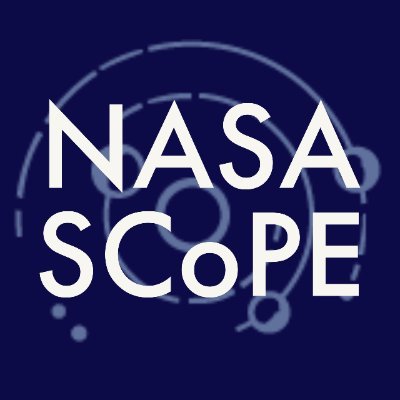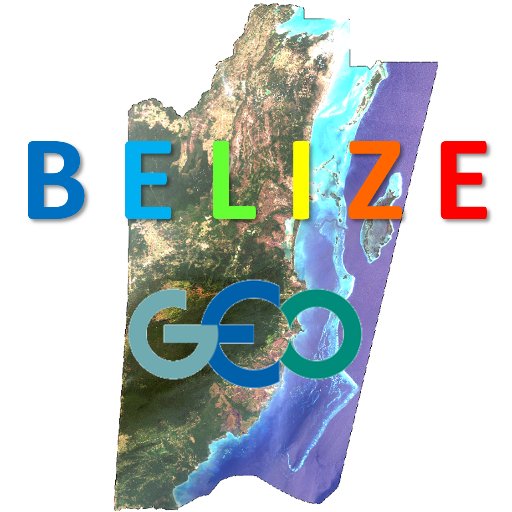#scicommfridays نتائج البحث
Awe and wonder are powerful tools in science communication. From black holes to quantum particles, every topic can spark curiosity and connection✨ #SciCommFridays For more on using awe and wonder, see the SciPEP report: lnkd.in/esTvvDWP
What are some #SciComm best practices that can help you? Check out this resource from @ejrquartz highlighting some Do's and Don'ts for communicating your science 📋 #SciCommFridays
☀️Scicomm Summer☀️ Whether you’re unveiling results 🧪, blogging ✍️ or posting on social media 📲, avoiding these classic pitfalls can help sharpen up your scicomm skills. Did we miss any other do’s✅and don’t’s❌? Let us know! 👇 #sciencecommunication #scicomm #STEM #science

Writing a scientific paper sometime soon? It might be easiest to start with the sections that you struggle the least with. Check out this #SciComm guide from @SciComm_Journal to help you as you begin your science writing! bit.ly/4odFJG0 #SciCommFridays
Are you thinking of creating short videos about your research? This group of PhD influencers shares their challenges and success for logging lab life on social media bit.ly/4fAJbqo @Nature #SciCommFridays #SocialMedia #research
Want help making your deliverables easier to understand? Check out this "De Jargonizer" tool to help make your science more accessible through an online vocabulary check that determines the suitability for general audiences scienceandpublic.com/de-jargonizer #SciCommFridays

Are you giving a presentation sometime soon? Here are 4 things to make your presentation more compelling; less text/more visuals, great storytelling, introduce figures gradually, and reinforce your main points. Read the full article at: bit.ly/3QmaqtE #SciCommFridays

🎭 Puppets aren’t just for play—they're powerful tools for science communication. New research shows how creative methods like puppetry help scientists of all disciplines explain complex ideas, engage communities, and boost public trust. newswise.com/articles/bring… #SciCommFridays

How do you accurately translate your work to a public audience? This comms toolkit from @aaas has loads of great tips and best practices. Check it out! bit.ly/40Xzt8U #SciCommFridays

So, you've been working diligently and now it's time to unveil your work to the public? Creating a plain language summary might just be your best first step. Check out this guide via @theAGU bit.ly/457u0zJ #SciCommFridays

Just starting your #SciComm journey? Check out these essential tips by @ejrquartz for communicating your science 👇👇👇 #SciCommFridays
Are you communicating your science persuasively or just reporting on your research findings? Check out this article to read more about how to make #SciComm persuasive and engaging 👇👇👇 #SciCommFridays
Phillip Gramlich's advice for science communication? Be understandable, relevant – and realistic. chemistryworld.com/careers/making…
chemistryworld.com
Making science communication persuasive and engaging
Be understandable and relevant - and realistic
Clear, relatable, two-way communication is at the heart of re-engaging the public with science. Find out why public engagement in science is not optional. @PennPSC #SciCommFridays
"Speak clearly and listen first." Atheendar Venkataramani unpacks why clear, relatable, two-way communication is at the heart of re-engaging the public with science and restoring trust. READ MORE: bit.ly/4l81p4M

Check out this upcoming #SciComm workshop hosted by @NEAQ next Wednesday! 👇👇👇 Registration is required. #SciCommFridays
*New Date* Science Communication in a Loud World: A Conversation with @ericfisher 📆: Wed, June 11, 2025 | 6:30 p.m. 📌: In person at the Simons Theatre or via live stream Advance registration is required. Register: bit.ly/450dxzS #LowellLecture #EricFisher

Can changing how you describe your science really improve understanding? Check out this article that explains the power behind the ABT ("And, But, Therefore") framework to better your #SciComm skills 📖✨🔗 #SciCommFridays
How „And, But, Therefore“ improve Science Stories wissenschaftskommunikation.de/how-and-but-th… #scicomm #WissKomm

Need help developing your #SciComm strategy? Here are 6 tips 💡 to help you get started #SciCommFridays
Need to communicate about your #research project but don't know where to start ❓ Follow our six #tips to develop an effective #communication strategy 💥 More suggestions? Add them as a comment⬇️ Further resources: europa.eu/!nx6CKc #REAdyToLearn #SciComm #TuesdayTips
Want to use games to engage your audience? Get hands on practice at the upcoming @ScienceTalkOrg No Coast SciComm Fun and Games Symposium on Wednesday September 17, 1–5 p.m. CDT! Register for this virtual event 👉 bit.ly/3UZB9y8 #SciCommFridays #Outreach
The rise of AI visualizations raises urgent issues about the ethics of image manipulation. How much can an image be altered and still be "authentic"? 🧐 Check out this article published in @Nature 👇 #SciCommFridays
Generative artificial intelligence illustrations can be helpful, but fall short as scientific records go.nature.com/3QwJneZ
nature.com
Will AI jeopardize science photography? There’s still time to create an ethical code of conduct
Nature - Generative artificial-intelligence illustrations can be helpful, but fall short as scientific records.
Can data visualization help improve your #SciComm storytelling? @LSEnews shares how art can amplify your research messaging 📣#SciCommFridays blogs.lse.ac.uk/impactofsocial…
blogs.lse.ac.uk
How to master data visualisation for impactful storytelling
Visualisation turns complex research into stories. From poverty maps to pandemic dashboards, James Abdey explores its power to boost understanding and impact.
Do you have your "elevator pitch" memorized? Say you hop into an elevator and to your surprise there's a major stakeholder from your field...you've got limited time - can you pitch them on your work? Check out these tips via @theAGU #SciCommFridays bit.ly/3OOpPDp
Said just now to a coworker: "Tweets are like fruit 🍈. If you save them too long, they spoil." Carpe diem! ☀️ #SciCommFridays
Awe and wonder are powerful tools in science communication. From black holes to quantum particles, every topic can spark curiosity and connection✨ #SciCommFridays For more on using awe and wonder, see the SciPEP report: lnkd.in/esTvvDWP
Writing a scientific paper sometime soon? It might be easiest to start with the sections that you struggle the least with. Check out this #SciComm guide from @SciComm_Journal to help you as you begin your science writing! bit.ly/4odFJG0 #SciCommFridays
What are some #SciComm best practices that can help you? Check out this resource from @ejrquartz highlighting some Do's and Don'ts for communicating your science 📋 #SciCommFridays
☀️Scicomm Summer☀️ Whether you’re unveiling results 🧪, blogging ✍️ or posting on social media 📲, avoiding these classic pitfalls can help sharpen up your scicomm skills. Did we miss any other do’s✅and don’t’s❌? Let us know! 👇 #sciencecommunication #scicomm #STEM #science

Are you thinking of creating short videos about your research? This group of PhD influencers shares their challenges and success for logging lab life on social media bit.ly/4fAJbqo @Nature #SciCommFridays #SocialMedia #research
Want to use games to engage your audience? Get hands on practice at the upcoming @ScienceTalkOrg No Coast SciComm Fun and Games Symposium on Wednesday September 17, 1–5 p.m. CDT! Register for this virtual event 👉 bit.ly/3UZB9y8 #SciCommFridays #Outreach
Clear, relatable, two-way communication is at the heart of re-engaging the public with science. Find out why public engagement in science is not optional. @PennPSC #SciCommFridays
"Speak clearly and listen first." Atheendar Venkataramani unpacks why clear, relatable, two-way communication is at the heart of re-engaging the public with science and restoring trust. READ MORE: bit.ly/4l81p4M

Just starting your #SciComm journey? Check out these essential tips by @ejrquartz for communicating your science 👇👇👇 #SciCommFridays
Can data visualization help improve your #SciComm storytelling? @LSEnews shares how art can amplify your research messaging 📣#SciCommFridays blogs.lse.ac.uk/impactofsocial…
blogs.lse.ac.uk
How to master data visualisation for impactful storytelling
Visualisation turns complex research into stories. From poverty maps to pandemic dashboards, James Abdey explores its power to boost understanding and impact.
So, you've been working diligently and now it's time to unveil your work to the public? Creating a plain language summary might just be your best first step. Check out this guide via @theAGU bit.ly/457u0zJ #SciCommFridays

Check out this upcoming #SciComm workshop hosted by @NEAQ next Wednesday! 👇👇👇 Registration is required. #SciCommFridays
*New Date* Science Communication in a Loud World: A Conversation with @ericfisher 📆: Wed, June 11, 2025 | 6:30 p.m. 📌: In person at the Simons Theatre or via live stream Advance registration is required. Register: bit.ly/450dxzS #LowellLecture #EricFisher

🎭 Puppets aren’t just for play—they're powerful tools for science communication. New research shows how creative methods like puppetry help scientists of all disciplines explain complex ideas, engage communities, and boost public trust. newswise.com/articles/bring… #SciCommFridays

Are you giving a presentation sometime soon? Here are 4 things to make your presentation more compelling; less text/more visuals, great storytelling, introduce figures gradually, and reinforce your main points. Read the full article at: bit.ly/3QmaqtE #SciCommFridays

How do you accurately translate your work to a public audience? This comms toolkit from @aaas has loads of great tips and best practices. Check it out! bit.ly/40Xzt8U #SciCommFridays

Do you have your "elevator pitch" memorized? Say you hop into an elevator and to your surprise there's a major stakeholder from your field...you've got limited time - can you pitch them on your work? Check out these tips via @theAGU #SciCommFridays bit.ly/3OOpPDp
Are you communicating your science persuasively or just reporting on your research findings? Check out this article to read more about how to make #SciComm persuasive and engaging 👇👇👇 #SciCommFridays
Phillip Gramlich's advice for science communication? Be understandable, relevant – and realistic. chemistryworld.com/careers/making…
chemistryworld.com
Making science communication persuasive and engaging
Be understandable and relevant - and realistic
Need help developing your #SciComm strategy? Here are 6 tips 💡 to help you get started #SciCommFridays
Need to communicate about your #research project but don't know where to start ❓ Follow our six #tips to develop an effective #communication strategy 💥 More suggestions? Add them as a comment⬇️ Further resources: europa.eu/!nx6CKc #REAdyToLearn #SciComm #TuesdayTips
Can changing how you describe your science really improve understanding? Check out this article that explains the power behind the ABT ("And, But, Therefore") framework to better your #SciComm skills 📖✨🔗 #SciCommFridays
How „And, But, Therefore“ improve Science Stories wissenschaftskommunikation.de/how-and-but-th… #scicomm #WissKomm

Want help making your deliverables easier to understand? Check out this "De Jargonizer" tool to help make your science more accessible through an online vocabulary check that determines the suitability for general audiences scienceandpublic.com/de-jargonizer #SciCommFridays

The rise of AI visualizations raises urgent issues about the ethics of image manipulation. How much can an image be altered and still be "authentic"? 🧐 Check out this article published in @Nature 👇 #SciCommFridays
Generative artificial intelligence illustrations can be helpful, but fall short as scientific records go.nature.com/3QwJneZ
nature.com
Will AI jeopardize science photography? There’s still time to create an ethical code of conduct
Nature - Generative artificial-intelligence illustrations can be helpful, but fall short as scientific records.
Are you doing outreach to other scientists? Here are 7 tips for leveraging digital marketing techniques to communicate your science #SciCommFridays
Marketing to scientists? Evidence-based content and transparency are key. Read this blog for seven actionable strategies, including avoiding oversimplification, engaging in scientific dialogue, and investing in high-quality visuals. See the comment below to learn more.

Interested in getting deeper into SciComm? Here are 10 tips for getting into Science Communication published by @UBC 👇👇👇 bit.ly/3FxwRX2 #SciCommFridays #Scienceoutreach

Need help communicating your science? Here are 10 tips to build on your communication skills bit.ly/3ROmjtE #SciCommFridays

Do you have a PhD and want to venture into science outreach? Check out this article that gives advice to early career scientists who want to "break into" science outreach: bit.ly/3FtxqRE @ASMicrobiology #SciCommFridays

Let's face it, we all use too much social media. But not all social media is negative! Here are tips for scientists to leverage their social media accounts to promote their research: bit.ly/47TvsqP #SciCommFridays #sciencetwitter

Are you looking for #SciComm visuals or illustrations to convey your research? Check out this FREE resource published by the NIH that includes over 2,000 scientifically accurate illustrations: bit.ly/3YvE1nU #SciCommFridays

Here are 10 science communication tools you can use to leverage your research! The number 1️⃣ most common tool to use is social media 📲 Read the full article: bit.ly/3EXRpI9 #SciCommFridays #sciencetwitter

Are you struggling to decide which social media platform to use? 🤔 Here are some tips when using social media. Find out which platform is the best fit for your science needs! @aslo_org bit.ly/3LC10rC #SciCommFridays #sciencetwitter

How do I engage a wide audience while speaking about my research? Here are tips from @HamiltonCollege on how to interact with different audiences and keep them engaged: bit.ly/475ix3M #SciCommFridays

Interested in experimenting with a career in science communication? Check out this article published in Science magazine: bit.ly/3Ee9Mbk Some examples include; blogging, podcasting, and more! #SciCommFridays #sciencetwitter

So, you've been working diligently and now it's time to unveil your work to the public? Creating a plain language summary might just be your best first step. Check out this guide via @theAGU bit.ly/457u0zJ #SciCommFridays

It can be difficult to determine what information is worth sharing, especially with so many resources out there. @theAGU has created a Quick Guide to Newsworthy Science. Check out the do's and don'ts of sharing information 👇 bit.ly/46jeZL4 #SciCommFridays

Networking is critical for making lasting connections and building your science community. Here are some ways on how to build your social network: bit.ly/46NSmyk #SciCommFridays #networking #community

Are you going to be giving a speech soon on your scientific findings? Here are 10 secrets to giving a good scientific talk according to the National Center for Atmospheric Research: bit.ly/3thZgxp #SciCommFridays #sciencetwitter

Looking to update your resume? Check out this cheat-sheet that includes examples and templates for science professionals: bit.ly/46J28Ci #SciCommFridays

Are you giving a presentation sometime soon? Here are 4 things to make your presentation more compelling; less text/more visuals, great storytelling, introduce figures gradually, and reinforce your main points. Read the full article at: bit.ly/3QmaqtE #SciCommFridays

🎭 Puppets aren’t just for play—they're powerful tools for science communication. New research shows how creative methods like puppetry help scientists of all disciplines explain complex ideas, engage communities, and boost public trust. newswise.com/articles/bring… #SciCommFridays

How do you accurately translate your work to a public audience? This comms toolkit from @aaas has loads of great tips and best practices. Check it out! bit.ly/40Xzt8U #SciCommFridays

Want help making your deliverables easier to understand? Check out this "De Jargonizer" tool to help make your science more accessible through an online vocabulary check that determines the suitability for general audiences scienceandpublic.com/de-jargonizer #SciCommFridays

Something went wrong.
Something went wrong.
United States Trends
- 1. Bears 51.7K posts
- 2. Falcons 22.7K posts
- 3. Josh Allen 19.4K posts
- 4. Bryce Young 7,365 posts
- 5. JJ McCarthy 9,413 posts
- 6. Chargers 19.4K posts
- 7. Vikings 26.9K posts
- 8. Packers 37.5K posts
- 9. Bengals 21.1K posts
- 10. Bucs 12K posts
- 11. Bills 109K posts
- 12. Panthers 17.9K posts
- 13. #KeepPounding 3,451 posts
- 14. Hyatt 3,804 posts
- 15. Ramsey 7,754 posts
- 16. Sean Tucker 3,596 posts
- 17. Steelers 34.4K posts
- 18. #GoPackGo 5,448 posts
- 19. Jameis 12.3K posts
- 20. Raheem 4,168 posts












